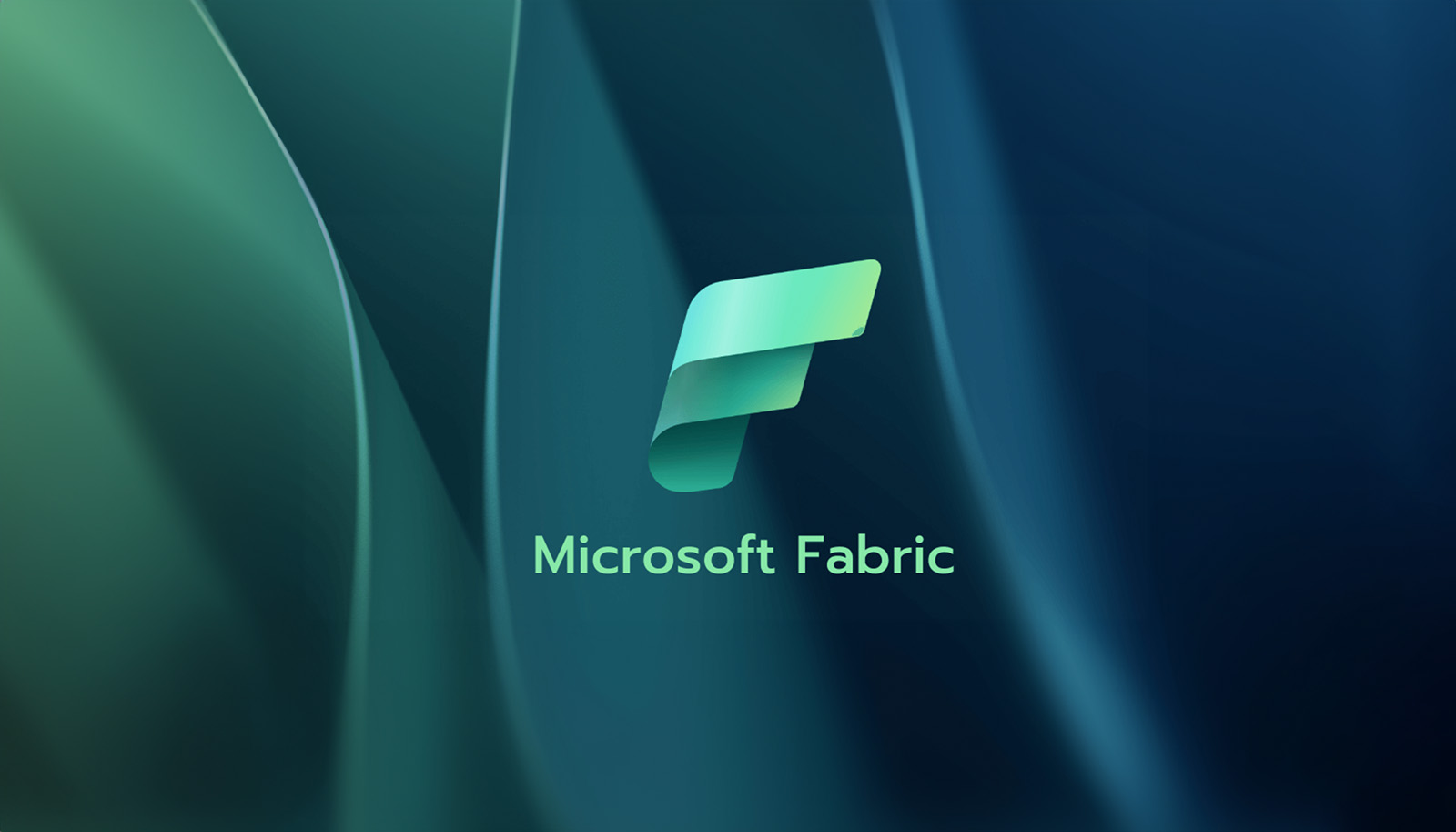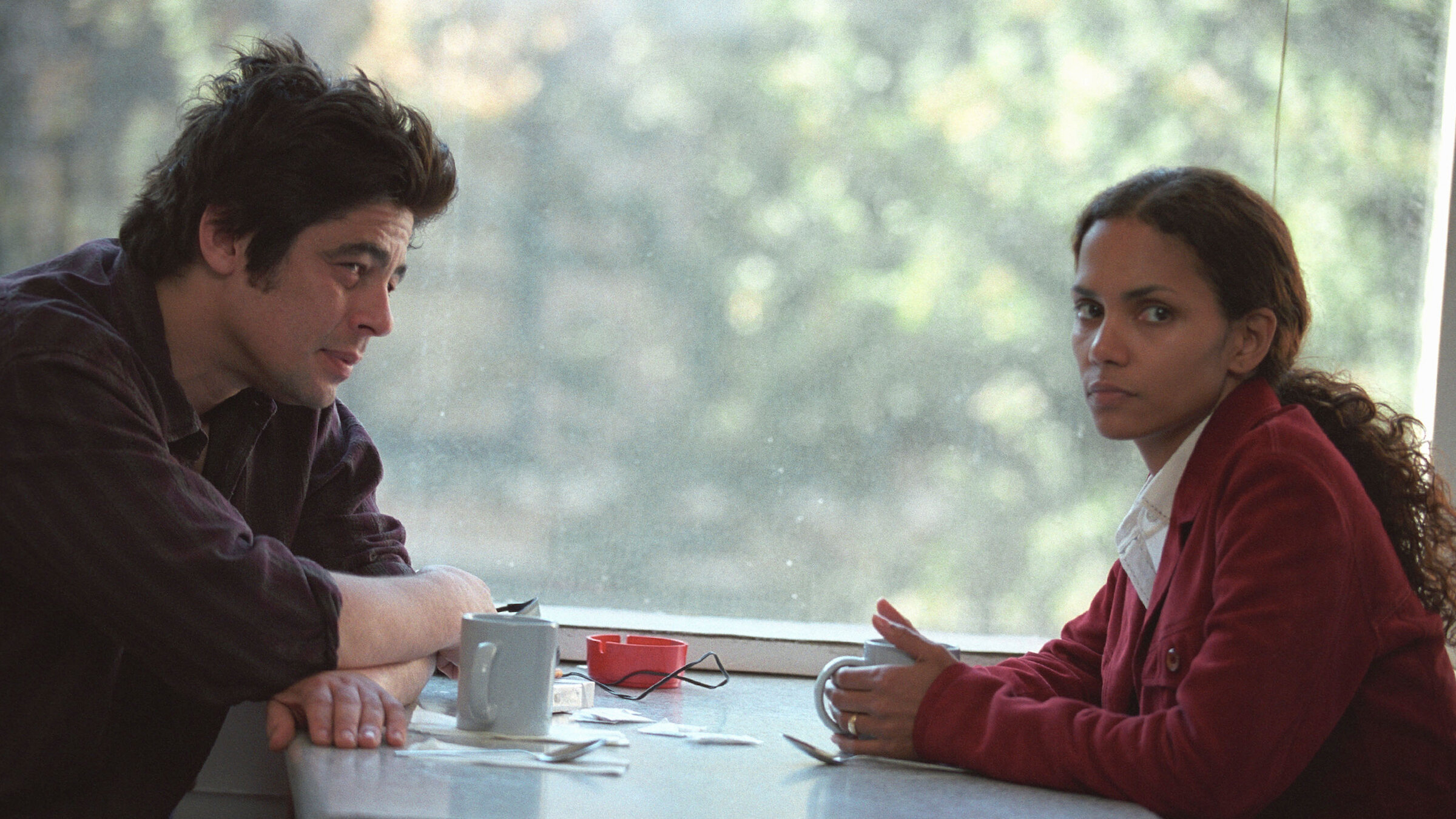Warning: This article contains spoilers for Gladiator II. Don’t read it if you want to go in blind. The TL;DR is “it was good, not great”. Also, this isn’t like a concise New York Times style review. I’m in here just saying stuff and thangs, so if you want a short sweet review, read this instead.
I Was Entertained
This past weekend, Ridley Scott’s long-awaited sequel to his iconic 2000 film Gladiator opened worldwide. The original remains one of my all-time favorite movies, and I’m far from alone in that sentiment. Its quality has stood the test of time, captivating generation after generation with its unforgettable moments and iconic quotes. Chief among them are several lines from the regally named Maximus Decimus Meridius, played by Russell Crowe. The most enduring of which is:
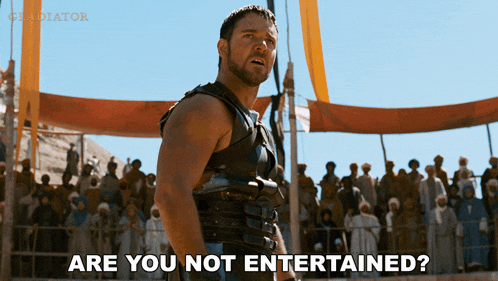
Well, I can confidently say I was entertained, but that’s hardly a feat given how hyped I was to see the film. I gleefully attended an 8:45 AM Saturday morning showing, ensuring I’d have the theater practically to myself for maximum immersion in the aura of ancient Rome. I share this to set the stage for the critiques I’ll deliver later. They are, admittedly, a bit contrived. Born from my desire to be an objective evaluator, a cinephile, rather than a fanboy.
The truth is, Gladiator II could’ve done very little to stop me from being entertained. Science fiction, fantasy, and historical epics like Troy, Ironclad, Robin Hood, Master and Commander, and The Kingdom of Heaven are my thing. That’s who I am. That’s what I like. I don’t need a polished Roger Ebert-style review to convince me to watch anything in those genres. That’s literally me. Know thyself right? Yeah. I know myself.
Furthermore, Gladiator II featured Denzel Washington. Let’s unpack that for a second. Specifically, what that means to me, seeing as this is my blog, and there’s maybe 5 people that actually read it, allowing me to eschew brevity in favor of depth. I invite you to grab a coffee (or tea 👏🏿💯) and meander with me into why I regard Denzel Washington so highly.
On the Nature of Denzel Washington
My fandom of Denzel goes beyond his prowess as an actor. That is, of course, what he’s known for, and I’m a fan of a great number of his films, including John Q, American Gangster, Flight, Man on Fire, Training Day, The Book of Eli, The Equalizer, Courage Under Fire, Remember the Titans, The Great Debaters, Antwone Fisher, and Glory. But being a good actor isn’t enough for me to regard someone as a role model and inspiration. It’s character and faith, demonstrated through action, that makes me such an enormous fan of Denzel Washington.
He is public, unambiguous, unashamed, and unyielding in his Christianity. It comes up constantly in interviews, where he never hesitates to share it. He routinely fills his college commencement speeches with Christian encouragement and teaching. And for someone who has been in Hollywood as long as he has, if you’re wondering whether he’s ever succumbed to its darker side, wonder no more. He’s been happily married since 1983, and we have firsthand accounts of his passionate opposition, nearly 20 years ago, to a certain insalubrious individual currently making headlines for unconscionable hedonism.
Denzel has been known to mentor young actors in Hollywood, encouraging them to leave parties “30 minutes before the devil gets there”. His message is simple: have fun, but maintain your integrity and purity above all else. He’s widely regarded among his peers for keeping things real, but his quality goes beyond words. It’s backed by action. An example of this is his quiet generosity in helping Chadwick Boseman through school, a fact he never intended to make public. It wasn’t until Chadwick himself, before his tragic passing, revealed the story during an awards ceremony, saying, “There is no Black Panther without Denzel Washington.” Denzel has spent countless hours paving the way for Black actors. His impact is woven into the opportunities and successes of those who have followed in his footsteps. Or said another way, he’s been standing on business for decades. His life is a beautiful contemporary example of being in the world, but not of it.
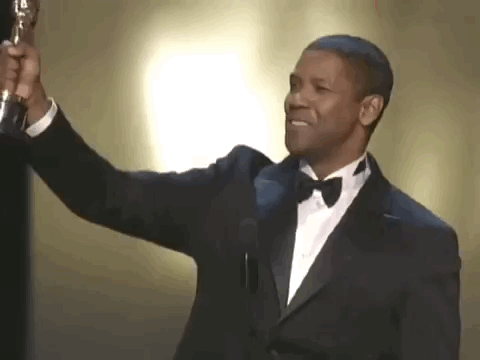
But that’s enough meandering. If you read through all that, I”ll assume you either really love Denzel, really enjoy my ramblings, or are just really bored, but either way, thank you. Let’s move into breaking down what made Gladiator II good, but not great.
The Good
To start, Denzel Washington was good, great really. When I saw this in the previews, I knew no matter what, I’d like the movie. His presence guaranteed a passing grade from me.
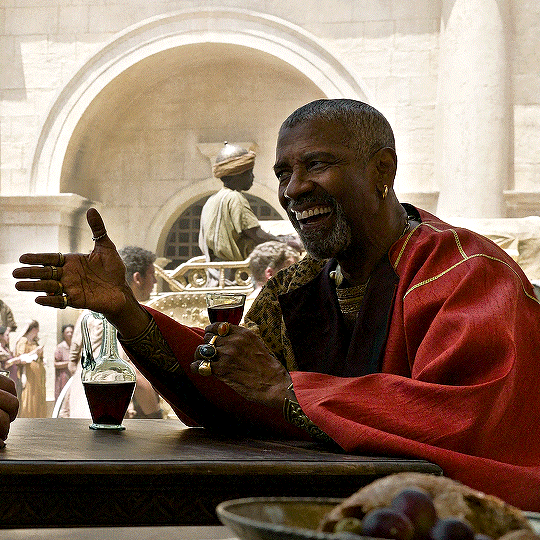
Now to be honest, he played himself to a certain extent. A friend of mine (shoutout JL) noted that his performance felt like Training Day Denzel, just in ancient times. He was “on one” the entire film, and I loved every minute of it. If you’re a fan of Denzel, you’ll love him in this movie. But if you were hoping for an ancient accent or mannerisms more appropriate to the time period, you might be let down. This isn’t the first time Denzel has acted in a period piece and decided to just be himself, a choice that, in my opinion, ultimately benefits the film. You can catch a similar approach in the 1993 film adaptation of Shakespeare’s Much Ado About Nothing. He was marvelous in that, though he didn’t bother much with an accent or fully acquiescing to the time period.
That being said, please do not lump Denzel Washington in with the likes of Dwayne “The Rock” Johnson, Vin Diesel, or Ryan Reynolds as actors who play themselves in every movie. If you believe that, please contact me, and I’ll personally walk you through his catalog to convince you otherwise. It’s simply not true. Denzel doesn’t play himself in every movie. He has a character archetype, sure, but, much like Tom Cruise before he went full action movie star, Denzel has range. Don’t get it twisted.
Aside from Denzel, other good parts of Gladiator II include:
-
The dual emperors, Geta played by Joseph Quinn and Caracalla played by Fred Hechinger. They were both marvelous, particularly at recreating the sense of opulent detachment that you got from Joaquin Phoenix’s Commodus in the original film. Joseph Quinn may be best known for his role in Stranger Things, but I most recently saw him in A Quiet Place: Day One, where his performance alongside Lupita Nyong’o was remarkable, showcasing his range, as he did yet again in Gladiator II. The emperors provided bits of comedic relief, serving as the instruments by which Denzel’s Macrinus carries out his ambitions.
-
The action set pieces were superb, par for the course in a Ridley Scott film. Scott, who also directed The Kingdom of Heaven, my all-time favorite movie, is no stranger to epic sword fights and impressive battle sequences. Side note: if you plan to watch Kingdom of Heaven, seek out the director’s cut. The studio version is practically a different movie, while the director’s cut is nothing short of legendary.
-
Pedro Pascal delivered a convincing performance as General Marcus Acacius, fully embracing the period nature of the role. He exuded the pride, aura, and regal air befitting a true Roman general. While I have some qualms with the plot surrounding his character, Pascal’s acting was superb and not at fault.
-
The costume design was outstanding. Everyone looked fantastic, but Macrinus particularly, truly immaculate drip.
-
The music was exceptional, thanks to legendary composer Harry Gregson-Williams. Known to me for his work on another favorite of mine, The Chronicles of Narnia: The Lion, The Witch, and The Wardrobe, Gregson-Williams delivered a score that was on point throughout the film.
-
A limited but memorable role from Rory McCann, who played Sandor “The Hound” Clegane in Game of Thrones, as General Tegula. It’s always good to see former Game of Thrones actors on the big screen, especially after the way that show ended. While I’m still a huge fan of the series, Season 8 was rough. Seeing McCann felt like reconnecting with an old friend, and his presence in the film gave me a warm, nostalgic feeling. Also, after writing this point, I’m remembering that Pedro Pascal was also in Game of Thrones as the strikingly flamboyant Oberyn Martell. Pascal has done so well since I honestly don’t consider him as “that actor from Game of Thrones”. Good for him!
-
The use of real life historical figures throughout the film, albeit with some artistic liberty. You can read through a list of them here.
So that’s the good, let’s dive into the bad, and unfortunately, there’s quite a bit of it.
The Bad
Gladiator II, while entertaining, was disappointing in several ways. Here’s my take on what went wrong.
-
The main character, Lucius Aurelius, played by Paul Mescal, was uninspiring, milquetoast, and bland. While not outright terrible, his performance felt like an attempt to replicate Russell Crowe’s charisma from the original rather than creating a unique, compelling character. His “inspirational” quotes fell flat, and his storyline was overly convoluted. Spoiler alert: Lucius is revealed to be the son of Maximus and Lucilla, daughter of Emperor Marcus Aurelius. While this is reasonable given the first film’s allusions to their romance, it led to a problematic character arc. Lucius spends the latter half of the film name-dropping his lineage to command authority. His final speech to unite Rome begins with him leveraging his father’s legacy, expecting seasoned Roman warriors to rally behind him based on bloodline alone. This undermines the qualities that made Maximus compelling. He earned respect through deeds, not inheritance.
-
Lucius’ character arc felt hollow. He loses the only battle we see him fight as a soldier, transitions to being a gladiator, admittedly an impressive one, but suddenly gains the respect of Roman legions purely because of who his father was. It felt like nepotism 101: “My dad was great, and my grandad was the Emperor, so listen to me.” This lack of credibility made him the film’s most disappointing aspect. The writers seemed determined to make a gladiator the lead to justify the title Gladiator II, but this felt forced. Denzel Washington’s character, Macrinus, was far more compelling and could have carried the film just as effectively while keeping the title relevant. As a gladiator owner, the plot could have explored how he wielded his gladiators to achieve his ambitions for Rome, providing a fresh and more believable perspective.
-
The romantic relationship between Pedro Pascal’s General Marcus Acacius and Connie Nielsen’s Lucilla added nothing of value to the film. It felt unnecessary. General Acacius was positioned as the virtuous Roman amidst the corruption of the emperors and Macrinus’s scheming, embodying the “strength and honor” ethos. However, tying him romantically to Lucilla, Maximus’s former lover, didn’t add depth to his character or the plot. He could have stood as a moral compass without this conjured connection to characters from the first film. But to be clear, Pedro Pascal’s acting was great, he was far from the issue.
-
Lucius’s hatred for General Acacius over the death of his wife was equally perplexing. Acacius gave a standard military order during the opening battle in Numidia that resulted in the death of Lucius’s wife. He did not directly kill her as much as he made a tactical decision to neutralize a threat, an archer who was picking off his men. It wasn’t an act of malice or cruelty, but a calculated choice in the heat of battle. Soldiers understand the cost of war, and Acacius’s actions were well within the realm of standard military strategy. Lucius’s personal vendetta against Acacius felt forced, as though the writers needed to manufacture a source of tension between the two characters. The animosity undermined both men’s arcs, particularly when Lucius suddenly shifted from hatred to respect upon realizing Acacius truly loved his mother, Lucilla. This rushed resolution cheapened their conflict and made Lucius’s motivations feel shallow and inconsistent.
-
Similarly, Lucius’s anger toward his mother for sending him away as a child was entirely unjustified. Lucilla’s decision was clearly to protect him from the treacherous political landscape of Rome, where his life was at risk. The first film portrayed Lucilla as a loving and protective mother, and it’s implausible that a then 12-year-old Lucius would forget this and resent her later. Instead of fostering empathy, it painted Lucius as a whiny brat, a grown man who, for some inexplicable reason, still fails to grasp the depth of his mother’s love and the sacrifice she made in sending him away.
-
The CGI in several scenes was noticeably poor. During the first gladiator fight, the baboons looked so bad I momentarily thought the film had veered into science fiction with genetically engineered beasts. Later, in the Colosseum sequence where they flooded the arena with water, a spectacle the Romans actually accomplished, the sharks looked unconvincing as they swam and attacked. These visual missteps detracted, albeit only slightly, from otherwise epic moments.
In summary, the main character’s shortcomings ultimately prevented the film from being great. Paul Mescal is a capable actor, but the writing failed him. If the creators had focused less on crafting a Russell Crowe clone and more on exploring the genuinely interesting elements of the story, the film could have lived up to its potential.
The Ugly
The only aspect of Gladiator II I found truly egregious was the handling of Palestinian actress May Calamawy’s role. She was brought onto the film with the promise of a meaningful part, yet her character was reduced to a fleeting appearance with no dialogue. It’s a particularly frustrating oversight given her standout performance in Disney’s Moon Knight, one of the stronger entries in an otherwise lackluster lineup of Disney+ Marvel series. Her omission feels like a significant missed opportunity to add depth to the story and further develop Denzel Washington’s character, as she was intended to portray his daughter. For more details about her scenes being cut, see this piece from The Independent.
In Conclusion
Despite my criticisms, let me be abundantly clear: I enjoyed watching Gladiator II and would recommend it to anyone who shares my love for historical epics. Even for those who don’t, Denzel’s performance alone elevates the film to a solid 7/10. Unfortunately, due to its flaws, it doesn’t rise much higher than that.
If you’re looking for a sequel that truly lives up to its predecessor, look no further than Dune: Part Two. Timothée Chalamet delivers a performance so commanding, particularly in the second half, that I left the theater in genuine awe. I went in doubting his ability to transition from a “coming-of-age” actor to a bona fide warrior and leader of men, much like Russell Crowe in the original Gladiator, and left fully convinced. Timmy Tim was on some Denzel Training Day type 💩. Had me like this the whole time:
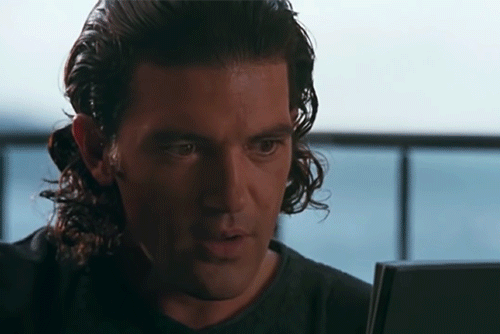
Dune: Part Two is already available on streaming platforms (and, for the daring, on the high seas), so you don’t even need a movie ticket. And honestly, the fact that I’m wrapping up a Gladiator II review by telling people to go watch Dune: Part Two probably says everything you need to know. So, thanks for reading, I’m out.




